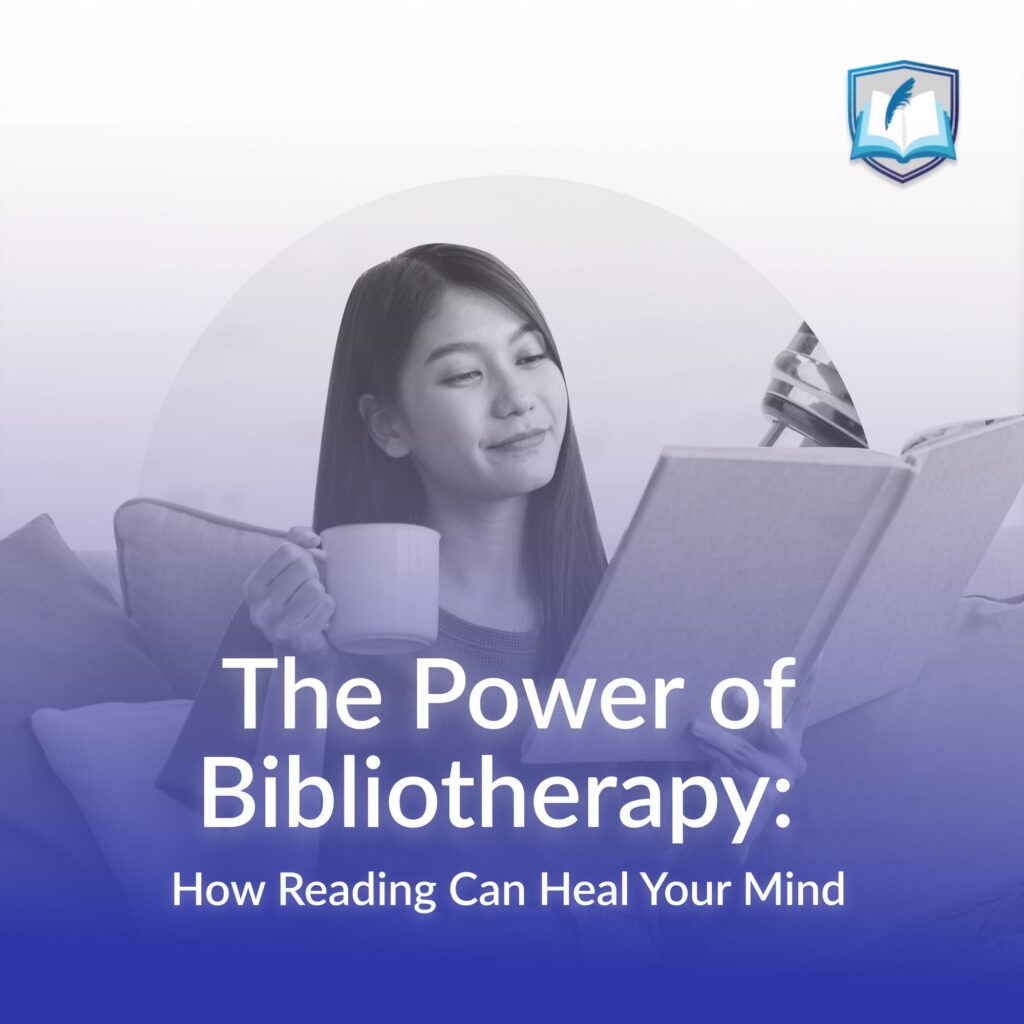Discover the transformative power of bibliotherapy and how reading can help heal your mind. This guide explores the benefits and how to get started.
Bibliotherapy is a form of therapy that uses books and reading as a way to promote healing and personal growth. Whether you’re dealing with anxiety or depression, or just looking for a way to expand your mind, bibliotherapy can be a powerful tool.
In this guide, we’ll explore the benefits of bibliotherapy and provide tips on how to get started.
What is bibliotherapy, and how does it work?
Bibliotherapy is a type of therapy that uses books and reading as a way to promote healing and personal growth. It works by allowing individuals to identify with characters and situations in books, which can help them gain insight into their own lives and experiences.
Reading can also provide a sense of comfort and escape, which can be especially helpful for those dealing with mental health issues. Bibliotherapy can be done individually or in a group setting and can be facilitated by a therapist or done on your own.
The benefits of reading for mental health.
Reading has numerous benefits for mental health. It can reduce stress, improve cognitive function, and increase empathy and understanding of others. Reading can also provide a sense of relaxation and escape from daily stressors.
Additionally, bibliotherapy has been shown to be effective in treating a variety of mental health issues, including depression, anxiety, and PTSD. It can help individuals gain new perspectives and coping strategies and can be a valuable tool in overall mental health and well-being.
How to choose the right books for your needs.
When it comes to bibliotherapy, choosing the right books is crucial. It’s important to select books that align with your interests and needs.
If you’re struggling with anxiety, for example, you may want to choose books that focus on mindfulness or relaxation techniques. If you’re dealing with grief, books on coping strategies or memoirs of others who have experienced loss may be helpful.
It’s also important to choose books that are engaging and enjoyable to read, as this can increase the effectiveness of bibliotherapy.
Consider seeking recommendations from friends, family, or mental health professionals, or explore online resources and book clubs focused on mental health and well-being.
Incorporating reading into your self-care routine.
Reading can be a powerful tool for self-care and mental health. By incorporating reading into your daily routine, you can create a space for relaxation, reflection, and personal growth. Whether it’s a few minutes before bed or during your morning commute, setting aside time to read can help reduce stress, improve focus, and boost your mood.
Consider creating a cozy reading nook in your home, or carrying a book with you wherever you go. By making reading a priority, you can reap the many benefits of bibliotherapy and improve your overall well-being.
Finding support and resources for bibliotherapy.
If you’re interested in exploring the benefits of bibliotherapy, there are many resources available to help you get started. Your local library or bookstore can be a great place to find books on a variety of topics, from self-help and personal growth to fiction and poetry.
You can also look for online reading communities or book clubs to connect with others who share your interests.
Additionally, many therapists and mental health professionals incorporate bibliotherapy into their practice, so don’t hesitate to ask your healthcare provider for recommendations. With so many options available, there’s no shortage of support and resources to help you harness the power of reading for healing and growth.
Bibliotherapy is a form of therapy that uses books and reading to help individuals improve their mental health and well-being. It is based on the idea that reading can be a powerful tool for personal growth and healing.
Studies have shown that bibliotherapy can be effective in treating a range of mental health issues, including depression, anxiety, and PTSD.
It can also be used as a tool for self-discovery and personal development. Whether it’s through fiction or non-fiction, reading can provide a safe space for individuals to explore their emotions and experiences, and gain new perspectives and insights.




